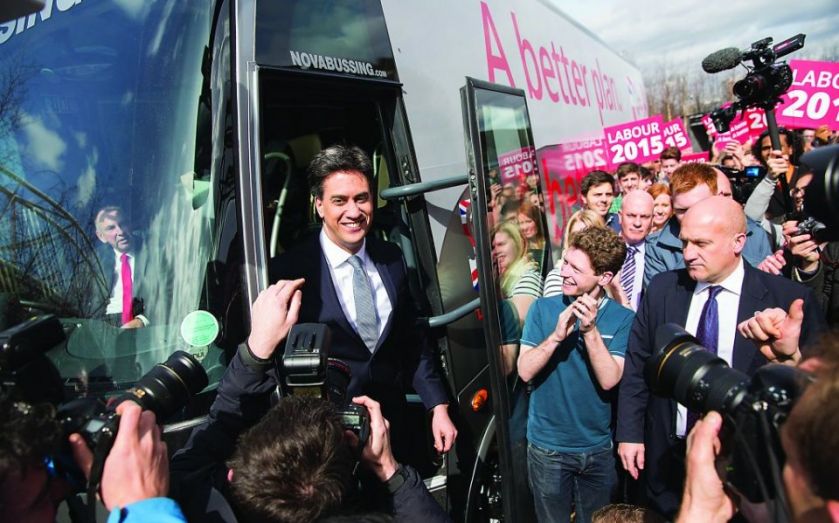Stewart Wood: The man behind Ed Miliband shaking up his party’s approach to business and the economy

Stewart Wood, the Labour peer, is not exactly a household name. He is more likely to be found following his beloved Liverpool football team around the country than touring the television studios for political programmes.
However, his influence as a long term ally of party leader Ed Miliband is becoming increasingly clear.
Wood has gone from being an academic at some of the world’s most refined institutions, including Oxford, to finding himself at the heart of the most frenetic General Election campaign in decades.
He is a member of the House of Lords and the shadow cabinet, and has a wide ranging, and somewhat unconventional roaming role within Labour.
Mark Ferguson, editor of the leading Labour grassroots website LabourList, said: “Wood is close to Miliband – so his role spans strategy, policy, communications, and stakeholders. He’s someone that Ed trusts, and as a policy person he clearly has Miliband’s ear.”
One of Wood’s key tasks in the run up to May’s crunch poll is to help reassure businesses that his party is not as hostile towards them as has been widely perceived.
Wood says that as part of a strategy to build trust with business “we’ve been very upfront and candid about some of these big things, we haven’t waited until the election to talk about energy market reform or about how retail banks work.”

Lord Wood of Anfield, a key Ed Miliband aide, took his title in honour of his football team
As part of the bridge building with business, he recently spoke at a breakfast hosted by financial communications firm Tulchan, attended by senior figures from major City companies. It might not quite be Blair and Brown’s prawn cocktail offensive, but it seemed to win some people over.
David Shriver, managing partner at Tulchan, reflected: “Those present [at the event] seemed reassured that someone like Stewart is feeding his thinking through to Ed Miliband and the shadow cabinet, and that the shadow cabinet’s views and policy decisions are being influenced in that way.”
Shriver was clearly impressed by Wood as an individual too, commenting: “If Stewart was a potential candidate for Prime Minister, the debate would be very different….there’s real heft to his thinking.”
A theme taken up by leading businesses, and clearly influenced by Wood, is making sure success is not only concentrated in the Square Mile.
Wood told City A.M.: “The model of success we’ve had as an economy, as a country, has been one that’s measured by how well people at the very top are doing, and that’s not the problem with the City of London, but the City of London’s success has become almost a proxy for how well the country is doing. [Labour] thinks of the country as a whole, we need a prosperity that’s genuinely shared rather than just enjoyed by a few.”
In terms of formulating policy, Wood is heavily focused on boosting Britain’s productivity levels. This is the at the core of his thinking.
“We are 20 per cent behind our competitors when it comes to productivity,” he lamented.
“Without productivity, without a higher skill, higher wage economy, and without thinking about how we can build that, it’s difficult to do anything,” he continued.
Underlining the emphasis he puts on this, Wood describes improved productivity as “the prerequisite of almost everything a good economy and a good government wants to do.”
A future government must “take seriously this question of what we can do to make our labour market more productive, our capital markets more productive, our banking and energy markets more productive,” he said.
He also thinks that “business should share that agenda, because that’s in the interests of productive business as well as in the interests of people who at the moment are struggling to get by, and see people doing better than them and finding it hard to keep up”.
Wood concedes that he is not pursuing a route traditionally taken up by his party. “Labour parties traditionally are much more concerned about tax and spending policies,” he said.
Closer inspection of his curriculum vitae shows that it should not come as much of a surprise that Wood is exploring somewhat challenging policy positions for Labour.
He was initially drawn to support a potential Ed Miliband leadership because “I thought he was the candidate who was prepared to say that Labour needed to move on from the New Labour years.” This is despite Wood spending years working at the heart of New Labour, including nine years as an adviser to former leader Gordon Brown in both the Treasury and Number 10.
Wood has not been taking the lead in writing the Labour manifesto, but his wide ranging role means that when it is published today much of what will be in it will be down to his work.
Ferguson commented: “His role in the manifesto will have been indirect,but his fingerprints will still be on it.”
Indeed those fingerprints are evident in manifesto commitments confirmed today to ban some zero hours contracts, and to raise the minimum wage to £8 an hour. What happens then if the Labour message Wood has helped craft works, and Miliband becomes Prime Minister after 7 May?
Dan Corry, who formerly advised Brown and has previously worked with Wood in the Labour party, is sure he will “get some kind of role” if Labour wins the election.
Given the importance Miliband obviously places on Wood’s advice, it seems almost certain that his influence on the direction of the Labour party will continue if Miliband succeeds. If he doesn’t, Wood could no doubt retire to the quieter corridors of academia, unruffled by the rough and tumble of the previous years.